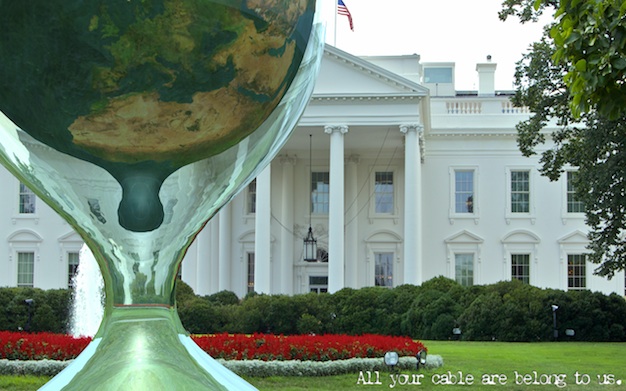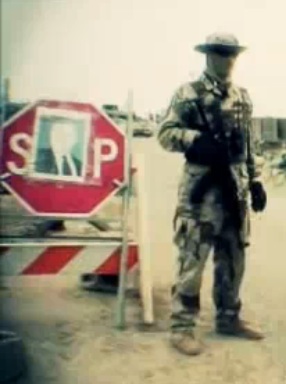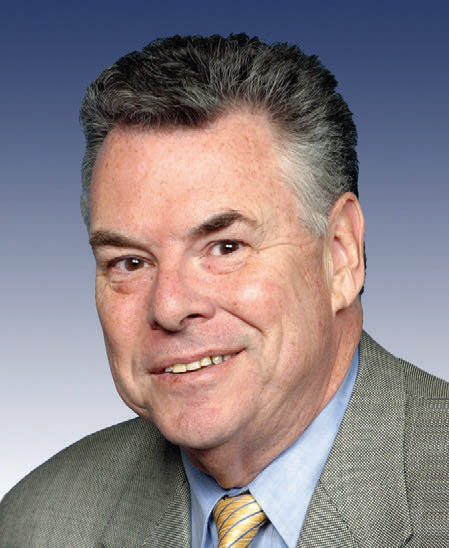 Next: Yar’Adua made me acting President, says Yayale
Next: Yar’Adua made me acting President, says Yayale
"As his health failed late president Umaru Yar’Adua illegally bypassed his vice president, Goodluck Jonathan, and handed presidential authority to Yayale Ahmed, the Secretary to the Government of the Federation.
This unconstitutional act has now come to light through US diplomatic cables leaked to Wikileaks and made available exclusively to NEXT."
Next: Buhari says speaker’s comments confirm his fears
"Two parties who went to court over the 2007 presidential elections, Atiku Abubakar and Muhammadu Buhari, yesterday reacted to comments credited to Speaker Dimeji Bankole that the late president, Musa Yar’Adua, bribed Supreme Court justices to swing the judgment in his favour. While Mr. Abubakar, the candidate of the opposition Action Congress in the election, maintained that the speaker of the House of Representatives’s comment had disgraced Nigeria, Mr. Buhari, the presidential candidate of the Congress for Progressive Change, said the revelation had vindicated his stand that the nation’s judiciary could not be trusted, and therefore needed a thorough overhaul."
Der Spiegel: EADS-Manager verspotteten Kollegen vor US-Diplomaten (EADS managers colleagues mocked U.S. diplomats)
 This date, March 19, 2011, marks the beginning of the ninth year of the US war in Iraq. The war, which began in 2003 with a bombing campaign of “shock and awe," has for years been more of an occupation than a war. Despite the fact that many believe the war is over (especially Americans), the US still has 47,000 troops in Iraq and, despite a 2011 withdrawal date, will likely continue to have tens of thousands of soldiers based in Iraq for years to come.
This date, March 19, 2011, marks the beginning of the ninth year of the US war in Iraq. The war, which began in 2003 with a bombing campaign of “shock and awe," has for years been more of an occupation than a war. Despite the fact that many believe the war is over (especially Americans), the US still has 47,000 troops in Iraq and, despite a 2011 withdrawal date, will likely continue to have tens of thousands of soldiers based in Iraq for years to come.
The past year has seen the world learn a great deal about the US war and occupation of Iraq. With the WikiLeaks release of US State Cables, the Iraq War Logs, and a “Collateral Murder” video showing US soldiers firing on journalists and innocent civilians from an Apache helicopter, the criminal nature of the war and occupation has become more evident. To mark the end of eight years of US troops in Iraq and the beginning of a ninth year, it is worth noting the many revelations on Iraq that have become known thanks to WikiLeaks.
On October 22, 2010, 390,000 field reports, which became known as the Iraq War Logs, showed the regular use of abuse, brutality and torture used on Iraqis by Iraqi Police and Iraqi Security Forces. The logs revealed, despite US claims, a tracking of civilian deaths had been going on, and, in fact, 66,000 civilian deaths (15,000 which were previously unknown) had occurred.
WL Central published an article two days ago, outlining the extraordinarily heavy handed redaction by the Guardian of a Bulgarian cable. Wikileaks tweeted the article, saying it was "Another very serious example of the Guardian "cable cooking" in violation of WikiLeaks agreements". Guardian investigations editor David Leigh responded with "@wikileaks Another stupid lie from #Assange alleging 'cable censorship' by #Guardian, (stuck with UK libel laws as he knows). What a liar!"
Wikileaks did not however, accuse the Guardian of cable censorship, they accused them of "cable cooking". A closer inspection of what happened in this one instance of cable redaction by the Guardian indicates that the Wikileaks description was closer to the mark. In fact, an examination of this document brings a feeling that the world will be in for Cablegate 2.0 when we finally get to see these cables without Guardian redaction.
The redaction on this particular cable is best shown here. The parts redacted by the Guardian are in green.
Human Rights Watch has issued a statement demanding that the US government explain the "extremely restrictive and possibly punitive and degrading treatment" of PFC Bradley Manning in pre-trial detention at Quantico Marine base in Virginia:
According to regulations governing operation of the brig issued by the secretary of the Navy, when a prisoner has been assessed to no longer pose a suicide risk by a medical officer they should be returned to appropriate quarters. According to a complaint filed by Manning, on 16 occasions military mental health professionals recommended that he be removed from POI status. While Manning's complaint was made public by his lawyer, the brig commander has not released the brig's formal response to his allegations. If Manning agrees to the release of medical or mental health information that would otherwise be confidential to protect his privacy, the government should immediately make public its rationale for his continued POI status.
... The new charges filed against Manning, for which the death penalty is possible, include aiding the enemy, even though Manning allegedly provided documents to WikiLeaks, not an agent of a government or armed group at war with the US. The removal of Manning's underwear during the evenings began the same day the additional charges were filed.
The language of the HRW statement approaches that of the ACLU's warning that Manning's treatment may be unconstitutional, as we reported here. That report has been updated with news of Ann Clwyd's question in the House of Commons today, the leader's lack of objection to her comparison between Manning's situation and that of prisoners at Guantanamo, and a transcript and video of Clwyd's exchange yesterday in committee with Foreign Minister William Hague.
Update: Ann Clwyd MP's question today, 17 March, in the Commons, on the turn
 MP Ann Clwyd (L-Cynon Valley) today raised the question of the treatment of PFC Bradley Manning at the Quantico military base in Virginia with the foreign secretary, William Hague, during his testimony before the Commons Foreign Affairs Committee. (The exchange between Clwyd and Hague appears in the last several minutes here.)
MP Ann Clwyd (L-Cynon Valley) today raised the question of the treatment of PFC Bradley Manning at the Quantico military base in Virginia with the foreign secretary, William Hague, during his testimony before the Commons Foreign Affairs Committee. (The exchange between Clwyd and Hague appears in the last several minutes here.)
Although Hague stood on legal formalities in his reply -- he cannot take a position without Manning's consent; Manning has stated that he does not consider himself a UK citizen; and it is up to Manning's US lawyer to seek redress of any treatment he considers unlawful -- he made one significant concession. At the close of his remarks he said voluntarily that the concerns of UK citizens about Manning's treatment would be brought to US diplomatic attention because they had been raised in a parliamentary committee.
Earlier in the day, an interview with Manning's friend David House, who has been talking to support networks in the UK this week, was published in the Guardian.
 Russian nuclear accident specialist Iouli Andreyev, who helped with cleanup in the aftermath of Chernobyl, said on March 16, “The Japanese were very greedy, and they used every square inch of the space. But when you have a dense placing of spent fuel in the basin, you have a high possibility of fire if the water is removed from the basin.” His comments came as Japan faces a growing nuclear disaster with nuclear reactors leaking and radiation plumes discharging into the atmosphere.
Russian nuclear accident specialist Iouli Andreyev, who helped with cleanup in the aftermath of Chernobyl, said on March 16, “The Japanese were very greedy, and they used every square inch of the space. But when you have a dense placing of spent fuel in the basin, you have a high possibility of fire if the water is removed from the basin.” His comments came as Japan faces a growing nuclear disaster with nuclear reactors leaking and radiation plumes discharging into the atmosphere.
Andreyev put the blame on corporations and United Nations' International Atomic Energy Agency, saying they had “willfully ignor[ed] lessons from the world's worst nuclear accident 25 years ago to protect the industry's expansion.” He condemned the nuclear industry for ensuring Chernobyl was not studied properly.
Japan has been scrambling to contain a nuclear catastrophe ever since an 8.9 earthquake struck last week. As of Wednesday, March 16, a helicopter was unable to drop water on “the most troubled reactor” in the country. Workers left the power plant briefly as radiation levels increased.
In 2007, twelve power companies “admitted to thousands of irregularities in reporting past problems.” Japanese citizens began to resist the building of new nuclear reactors. They pushed for legal actions to suspend operations. Now, US State Cables released by WikiLeaks, which are being published by the Telegraph and The Guardian, further affirm that some sort of coverup has been going on.
 UPDATE: Unedited podcast is posted.
UPDATE: Unedited podcast is posted.
This week’s guest is Debra Sweet. She is the Director of World Can't Wait, initiated in 2005 to "drive out the Bush regime" by repudiating its program, forcing it from office through a mass, independent movement and reversing the direction it had launched. Based in New York City, she leads World Can't Wait in its continuing efforts to stop the crimes of our government, including the unjust occupations of Iraq and Afghanistan and the torture and detention codes, as well as reversing the fascist direction of U.S. society, from the surveillance state to the criminalization of abortion and immigrants.
Her writing can be read here. Her latest piece is “Nakedness, Justice and Bradley Manning.”
To mark the eighth anniversary of the Iraq War, Sweet discusses some of the revelations that have come from WikiLeaks on the Iraq War thanks to Cablegate and the Iraq War Logs and the "Collateral Murder" video.
Sweet addresses how WikiLeaks revelations on the wars are fueling antiwar resistance in America. She will highlight upcoming actions on March 19 and 20 in the United States to oppose ongoing US wars and occupations and to support Bradley Manning, the alleged whistleblower being held at Quantico Marine Brig in Virginia.
Following Sweet’s interview, some time was spent doing a roundup on some of the past week’s news related to WikiLeaks. The milestone that was reached this week, the 100th Day of Cablegate, was recounted.
To listen to the podcast, click play on the widget below. Or, go to CMN News.
 Rep. Peter King of New York, who held the first in a series of hearings on radicalization in the American Muslim community on March 10, has a well-known position on WikiLeaks: It’s terrorism. He urged the Treasury Department in January 2011 “to add WikiLeaks and its founder Jullian Assange to the Specially Designated National and Blocked Persons List (SDN List).”
Rep. Peter King of New York, who held the first in a series of hearings on radicalization in the American Muslim community on March 10, has a well-known position on WikiLeaks: It’s terrorism. He urged the Treasury Department in January 2011 “to add WikiLeaks and its founder Jullian Assange to the Specially Designated National and Blocked Persons List (SDN List).”
His letter to the Treasury Department explains his opinion, “The U.S. government simply cannot continue its ineffective piecemeal approach of responding in the aftermath of Wikileaks’ damage. The Administration must act to disrupt the Wikileaks enterprise. The U.S. government should be making every effort to strangle the viability of Assange’s organization.”
Presumably, King would like to see WikiLeaks “strangled” in the way that the Committee on Islamic-American Relations (CAIR) is being cracked down on by the FBI. King explicitly called for Muslim-Americans to reject CAIR, which he said “was named as an unindicted co-conspirator in the terrorist financing case involving the Holyland Foundation.”
In the leadup to this hearing I found it shocking and sad that the mainstream media accepted CAIR’s accusations as if it were a legitimate organization. Thankfully, FBI Director Mueller has ordered the FBI to cease all dealings and contact with CAIR. I would hope that all law enforcement officials would follow the lead of the FBI Director.
Julian Assange has agreed to address the Cambridge Union on 15 March, reports the student paper The Tab.
The Union, officially the Cambridge Union Society, is a debating society founded in 1815 and is distinct from the student union. In addition to its weekly debates, it welcomes distinguished speakers from around the world.
The event will be open to Union members only. There is no word yet whether it might be otherwise transmitted.
Via @MarksLarks on Twitter
Authored by Tony Kevin, former Australian Diplomat.
Chillingly, inexorably, the lifepaths of Julian Assange and Bradley Manning are converging.
Not yet in the sense that Manning’s US military torturers hope for, with a desired confession by him whether true or falsely coerced of prior collaboration with Assange to pass US classified intelligence material to Wikileaks. Either would satisfy them, because even a false and forced confession, that could be later disavowed by Manning in court, could be enough in the US judicial system to trigger a valid US secret grand jury arrest warrant for Assange’s extradition to the US. Such a warrant could be served either on the UK or Swedish governments, depending on where Assange was at the time.
More broadly, their stories are appropriately coming together now as stories of two young national heroes, one American and one Australian, who are putting their lives on the line now for the sake of defending the principle of individual moral accountability for the actions of their national states that profess to share similar political values. This principle has been variously expressed by many political leaders and thinkers, of which a few examples here will suffice. I am sure an Obama quotation could be readily found to add to this short list:
US founding father Benjamin Franklin, in 1792 - … a nation as a society forms a moral person, and every member of it is personally responsible for his society.
Martin Luther King at the height of his US civil rights struggle - Our lives begin to end the day we become silent about things that matter.
"Conspiracy as Governance", Julian Assange, 3 December 2006, from me@iq.org
The following brief was submitted to the meeting outlined here by WL Central:
On 2nd March 2011 at 9.15am a meeting was held, organised by Andrew Laming (Liberal Party MP Bowman Qld) at Parliament House Canberra to allow federal parliamentarians who wished to attend, some insights into the matters of Julian Assange facing extradition from the UK to Sweden, and facing (subject to that extradition process) a possible trial in Sweden and another possible extradition to the USA thereafter.
Among others, MPs Andrew Laming, Malcolm Turnbull, Doug Cameron and Sarah Hanson-Young were in attendance, along with parliamentary staff members.
Three speakers made themselves available for oral presentations and questions: Greg Barns, barrister from Tasmania; former Australian diplomat Tony Kevin and Peter Kemp solicitor from NSW, the latter two made written material available for the parliamentarians reprinted here with their permission.
The following brief was submitted to the meeting by Jennifer Robinson of the firm Finers Stephens Innocent. She is part of the legal team representing Julian Assange in the extradition proceedings requested by Sweden.
On 2nd March 2011 at 9.15am a meeting was held, organised by Andrew Laming (Liberal Party MP Bowman Qld) at Parliament House Canberra to allow federal parliamentarians who wished to attend, some insights into the matters of Julian Assange facing extradition from the UK to Sweden, and facing (subject to that extradition process) a possible trial in Sweden and another possible extradition to the USA thereafter.
Among others, MPs Andrew Laming, Malcolm Turnbull, Doug Cameron and Sarah Hanson-Young were in attendance, along with parliamentary staff members.
Three speakers made themselves available for oral presentations and questions: Greg Barns, barrister from Tasmania; former Australian diplomat Tony Kevin and Peter Kemp, solicitor from NSW. The latter two made written material available for the parliamentarians, reprinted below with their permission. Written material was also provided by Jennifer Robinson, UK counsel for the Julian Assange. That material is reprinted with permission here.
After short addresses by each of the three speakers, the meeting was opened for questions and summaries of each speaker in the proceedings appears below, after biographies.
 The following is a chat that recently took place on the Swedish news website Aftonbladet with Julian Assange. Assange talks about his trial, the possibility of extradition to the United States, why he thinks he won't get a fair trial in Sweden, how WikiLeaks is faring currently, whether WikiLeaks will go on if he is found guilty and sentenced to jail, and more. Here it is re-published in full.
The following is a chat that recently took place on the Swedish news website Aftonbladet with Julian Assange. Assange talks about his trial, the possibility of extradition to the United States, why he thinks he won't get a fair trial in Sweden, how WikiLeaks is faring currently, whether WikiLeaks will go on if he is found guilty and sentenced to jail, and more. Here it is re-published in full.
 El País: EE UU veía al actual jefe de las FARC como el hombre más dispuesto a firmar la paz (U.S. saw the current head of the FARC as a man more willing to make peace)
El País: EE UU veía al actual jefe de las FARC como el hombre más dispuesto a firmar la paz (U.S. saw the current head of the FARC as a man more willing to make peace)
"Alfonso Cano, el jefe de las guerrillas de las FARC, el hombre más buscado de Colombia, anda estos días con el Ejército pisándole los talones. El presidente de Colombia, Juan Manuel Santos, declaró el jueves 17 de febrero que los militares andan "respirándole en la nuca". Poco tiene que ver ahora este Alfonso Cano con el que ingresó en la guerrilla a finales de los setenta y se hizo un hueco entre sus dirigentes cuando Manuel Marulanda, alias Tirofijo, ejercía de jefe indiscutible en la montaña. En aquella época Alfonso Cano era la persona en la que Estados Unidos depositaba sus esperanzas de paz, según confirman los documentos del Departamento de Estado filtrados por Wikileaks. (Alfonso Cano, the leader of the guerrillas of the FARC, Colombia's most wanted man, come these days with the army at his heels. The president of Colombia, Juan Manuel Santos said on Thursday Feb. 17 that the military walk "breathing down your neck." Has little to do now this Alfonso Cano with the one who joined the guerrillas in the late seventies and obtained his position between the leaders when Manuel Marulanda, alias "Sureshot", was the undisputed boss on the mountain. At that time, Alfonso Cano was the person in which the United States deposited their hopes for peace, as confirmed by State Department documents leaked by Wikileaks.)"
The world watches in horror as peaceful protesters particularly in Libya and Bahrain (but also in Iraq and elsewhere) are attacked by police or military forces using live ammunition. Even worse, in Bahrain, firstly at the Pearl Roundabout, not only did those armed forces prevent many injured from being removed from the streets for medical attention, they beat up the paramedics attempting to remove those injured. Here are graphic videos at Wikileaks Central the first of which is another Bahrani incident, (horrific scenes of dead and dying).
There are other incidents not necessarily confirmed but wholly consistent with orders for security forces to use extreme force and deny medical attention to the wounded, including removing the injured from hospital.
In Libya, Human Rights Watch reports at least 84 dead in several cities:
 The streets of Bahrain are becoming increasingly violent. Security forces are using live rounds on protesters. Just over a day ago, right before dawn security forces ambushed protesters camping peacefully in the Pearl Roundabout, an area they had turned into their “Tahrir Square.” Many were injured, a few were killed. And, the world is witnessing the brutal discriminatory practices often used by the regime against Shia citizens and activists who dare to criticize the regime or exercise freedom of expression.
The streets of Bahrain are becoming increasingly violent. Security forces are using live rounds on protesters. Just over a day ago, right before dawn security forces ambushed protesters camping peacefully in the Pearl Roundabout, an area they had turned into their “Tahrir Square.” Many were injured, a few were killed. And, the world is witnessing the brutal discriminatory practices often used by the regime against Shia citizens and activists who dare to criticize the regime or exercise freedom of expression.
For years, a monarchy headed by King Hamad bin Isa al- Khalifa has come under sharp criticism for its use of torture. Amnesty International published a report on February 11 titled, “Crackdown in Bahrain: Human Rights at the Crossroads.” And now, WikiLeaks has released several cables detailing the torture of political prisoners and other Bahrainis.
Paul Stephens, Australian ambassador to Sweden, last week formally requested assurances from Swedish Justice Minister Beatrice Ask concerning the treatment of Julian Assange under Swedish law.
In a letter written on the day of final arguments in Assange's extradition hearing last Friday,
Stephens explained that Assange "has been detained in his absence" by a Swedish court on suspicions of having committed "a criminal offence".
"I wish to convey the Australian Government's expectation that, should Mr. Assange be brought into Swedish jurisdiction, his case would proceed in accordance with due process and the provisions prescribed under Swedish law," the Australian ambassador.
He emphasised as well that he expected Assange's case to adhere to "applicable European and international laws, including relevant human rights norms."
The following is a reconstruction of the Julian Assange extradition proceedings on 11 February 2011 based primarily on the tweets of @federicacocco (Federica Cocco) and in much smaller part from the tweets of @channel4news. WL Central acknowledges those sources. The tweets have been preserved as much as possible and combined but are rewritten in parts for clarity, and legal terminology has been inserted where appropriate. Clarifying additions are generally in italics and may be assumptions within the legal context.
SC Robertson’s Submissions.
Robertson QC opens submissions with an account of the attack on Julian Assange by Fredrik Reinfeldt, prime minister of Sweden; Robertson says that Reinfeldt's comments earlier this week amount to his labelling Assange an "enemy of the people" in Sweden.
"This will influence a fair trial,” says Robertson, who quotes the prime minister as claiming that Assange and his lawyers are “sexist and condescending to Sweden."
The Swedish chancellor added to the prime minister's remarks, which Robertson says is an intolerable development; he adds that it is unprecedented for a government minister to comment in that way.
The Witness Statement of Bjorn Hurtig, Swedish counsel for the defense of Julian Assange - Summary
The original statement is available here, and the supporting documents are here, here, and here. In this document, Mr Hurtig describes the case against Mr Assange to the London defense team as one of the weakest he has ever seen in his entire fifteen year career. In this document London defense Mark Stephens asserts that the Swedish prosecutor sought not just to have Mr Assange imprisoned while under investigation, but also placed in solitary confinement. The key points of Mr Assange's skeleton argument were summarized here.
Mr Hurtig states that the manner in which Ms Ny (the Swedish Prosecutor) has handled Mr Assange's case is not in compliance with the concept of a fair trial.
Mr Assange will most certainly be brought to trial behind closed doors, initially and in the Court of Appeal. Mr Assange, who has endured an avalanche of bad publicity, will be heard with no witnesses to view the weaknesses of the case and thus no opportunity to clear his name. Prosecution witnesses will not be refuted by any new witnesses coming forward, because no one will hear their testimony.
The trial will be heard by a judge and three laypersons who are appointed by, and often members of, a political party.
The trial may be affected by media prejudice caused by the unfair conduct of police and prosecutors. Before the complainants were properly interviewed, and thus before an investigation ought to have begun, a prosecutor told the Expressen newspaper that Mr Assange was being investigated for rape, a serious breach of Swedish anonymity law. Despite this breach, the prosecutor has not been disciplined and the Justice Ombudsman has refused to accept a complaint made against her.
Ya no queda ninguna duda de que Wikileaks está siendo atacada: amenazas directas desde el Pentágono; llamamientos al ataque militar por parte de la vieja derecha neo-conservadora, – que incluye un intento de juzgarla como espía usando una vieja ley de 1917 ; los sonados boicots de Paypal, Moneybookers, Amazon y ahora incluso Apple; la reticencia del gobierno Australiano para defender a su ciudadano (Julian Assange), el rechazo de su residencia en Suecia sin explicación alguna por parte de las autoridades, y la lista crece.
Ahora bien, aunque muchas voces han insinuado, o abiertamente declarado, que las acusaciones de violación del Sr. Assange son una faceta más de esta campaña, por su naturaleza sensible es mejor no apresurarse en llegar a conclusiones. Lo que sí es seguro es que las constantes irregularidades del caso lo hacen cuestionable, razón por la cual cada vez hay más voces expresando su preocupación por la verdadera motivación de las acusaciones. A mediados de agosto y en pleno revuelo de las filtraciones hechas por su organización sobre la guerra de Afganistán, el Sr. Assange salía casualmente con una politóloga liberal e activista sueca, Anna Ardin. Según su versión este la habría forzado sexualmente la noche del 14 de ese mes, por lo que una semana después presentó una demanda formal.
Theme by Danetsoft and Danang Probo Sayekti inspired by Maksimer